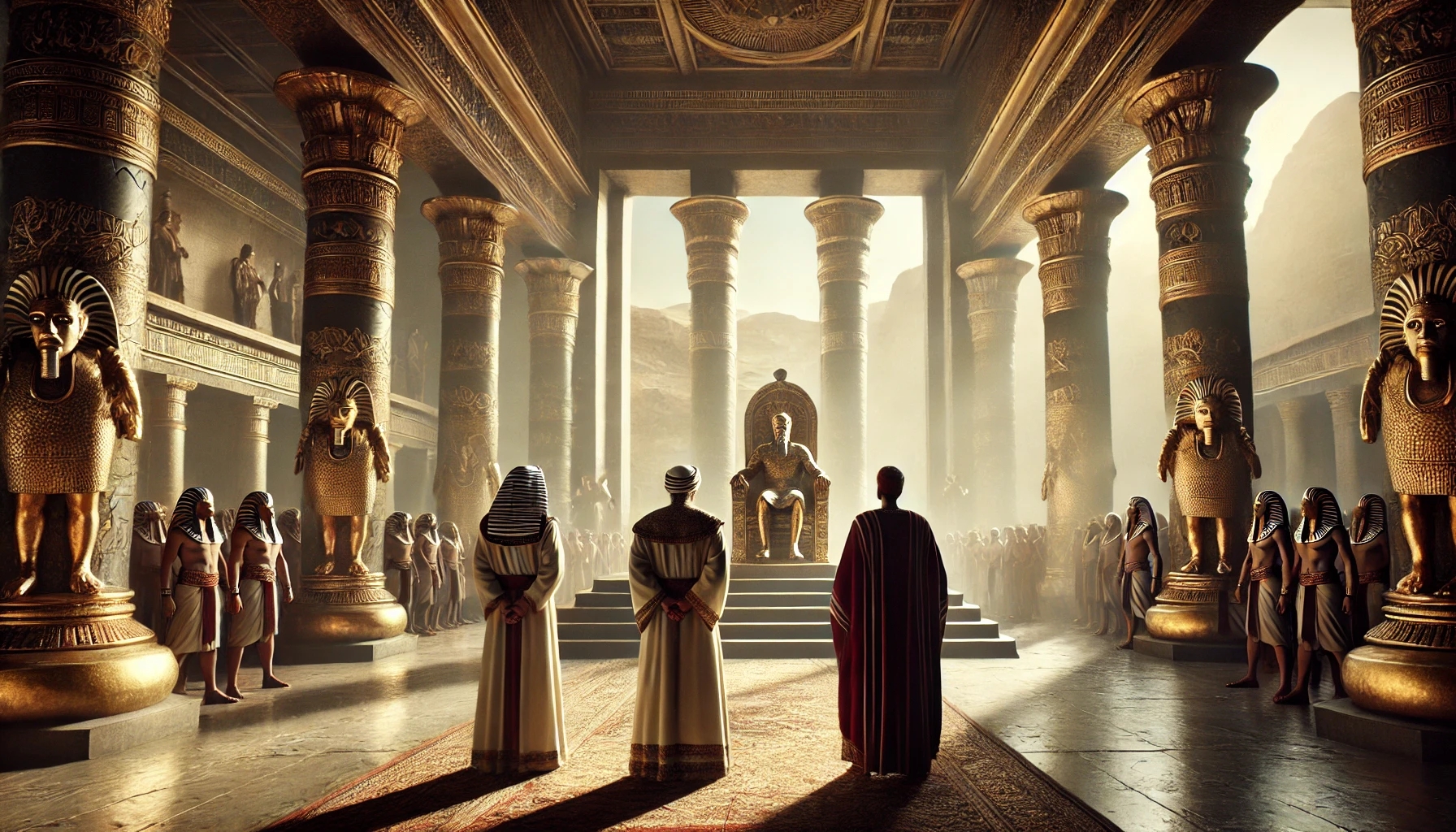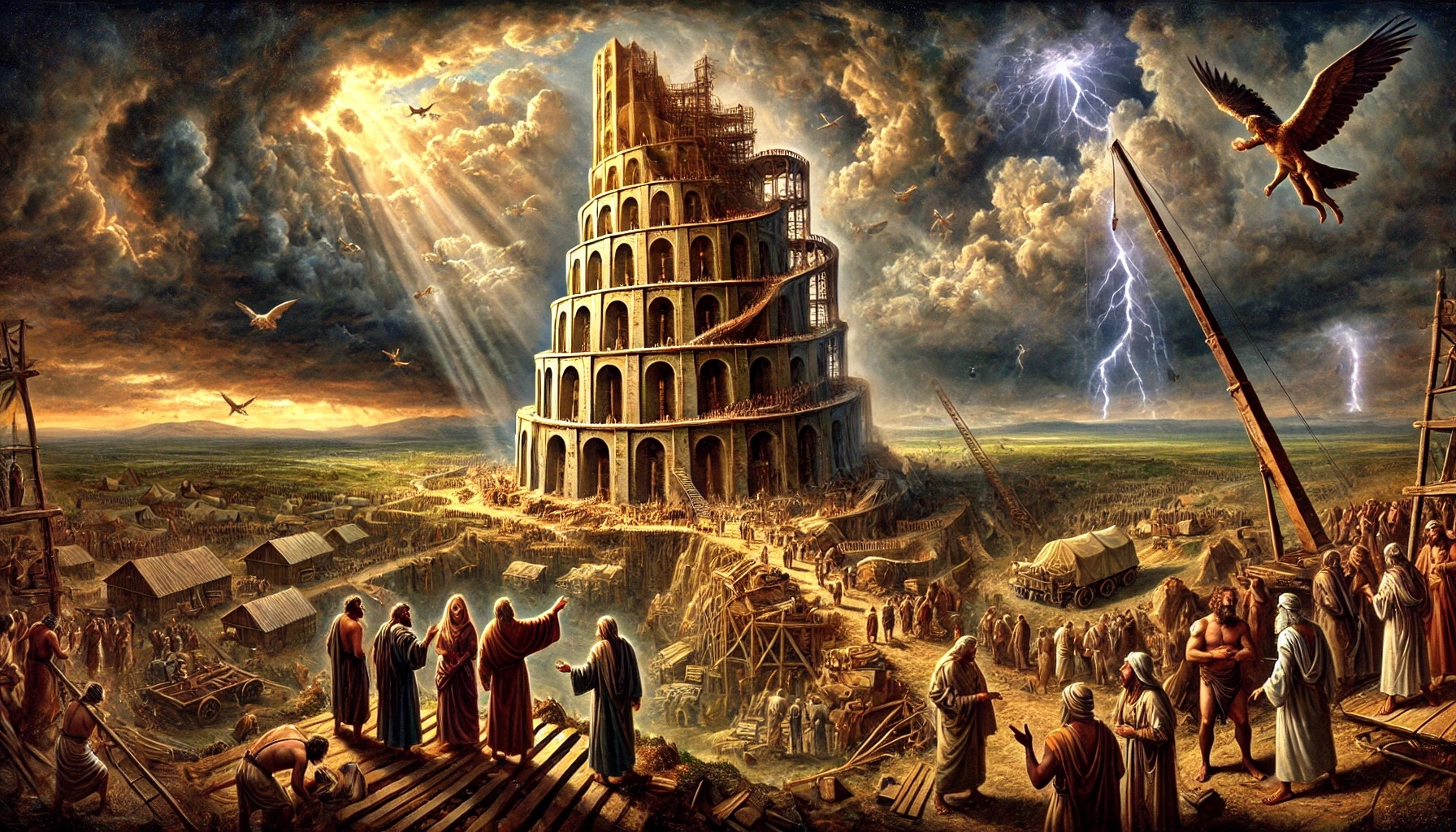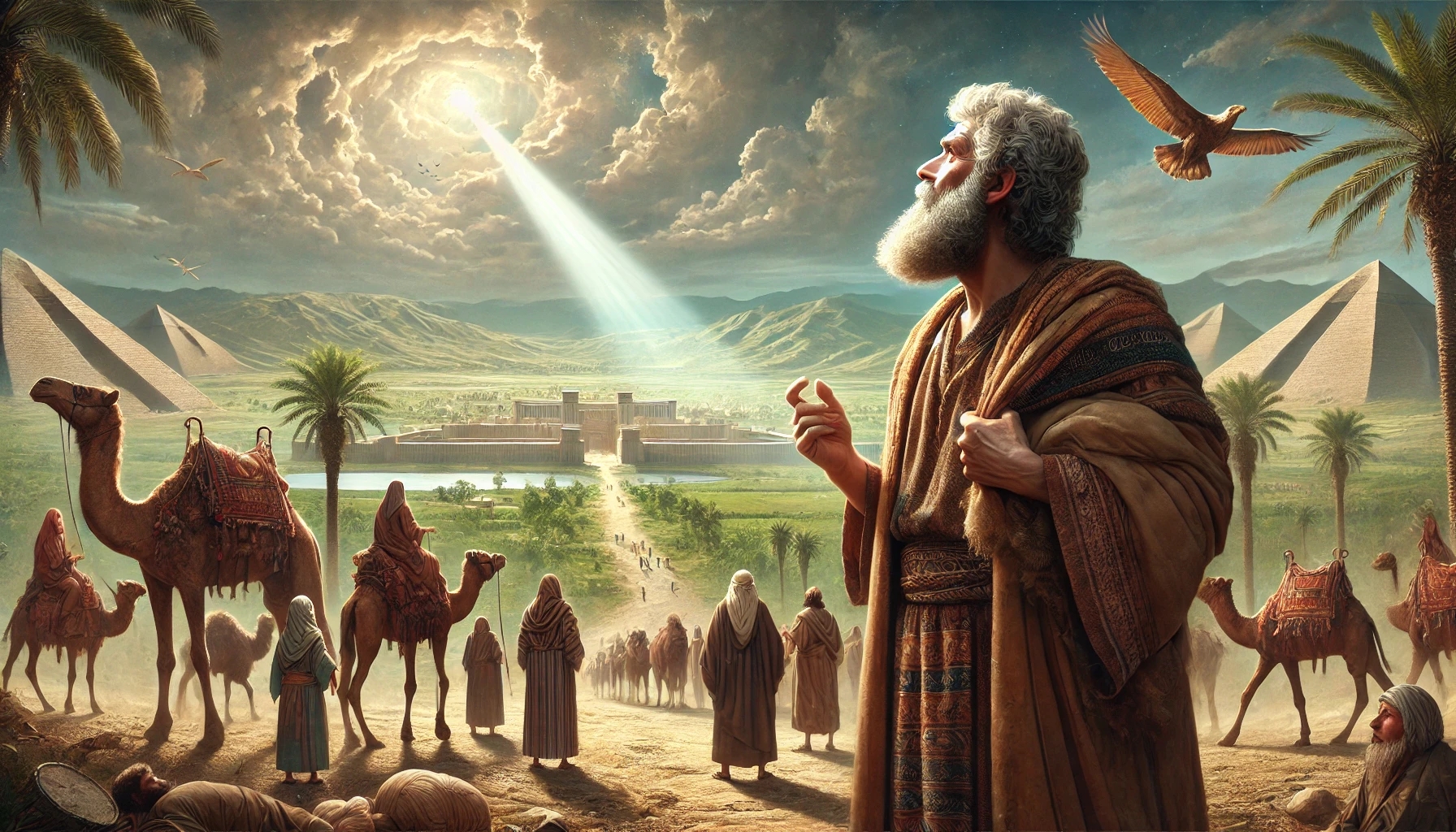10. 06.2025 – Exodus Chapter 5 | BELIEVE HIS PROPHETS

📅 June 10, 2025
📖 DAILY BIBLE READING
✨ Exodus 5 – When the Call to Freedom Brings Suffering
⛺ Resistance, Oppression, and God’s Perspective
══════════════════════════════════════════════
📜 Bible Text – Exodus 5 (KJV)
1 And afterward Moses and Aaron went in, and told Pharaoh, Thus saith the Lord God of Israel, Let my people go, that they may hold a feast unto me in the wilderness.
2 And Pharaoh said, Who is the Lord, that I should obey his voice to let Israel go? I know not the Lord, neither will I let Israel go.
3 And they said, The God of the Hebrews hath met with us: let us go, we pray thee, three days’ journey into the desert, and sacrifice unto the Lord our God; lest he fall upon us with pestilence, or with the sword.
4 And the king of Egypt said unto them, Wherefore do ye, Moses and Aaron, let the people from their works? get you unto your burdens.
5 And Pharaoh said, Behold, the people of the land now are many, and ye make them rest from their burdens.
6 And Pharaoh commanded the same day the taskmasters of the people, and their officers, saying,
7 Ye shall no more give the people straw to make brick, as heretofore: let them go and gather straw for themselves.
8 And the tale of the bricks, which they did make heretofore, ye shall lay upon them; ye shall not diminish ought thereof: for they be idle; therefore they cry, saying, Let us go and sacrifice to our God.
9 Let there more work be laid upon the men, that they may labour therein; and let them not regard vain words.
10 And the taskmasters of the people went out, and their officers, and they spake to the people, saying, Thus saith Pharaoh, I will not give you straw.
11 Go ye, get you straw where ye can find it: yet not ought of your work shall be diminished.
12 So the people were scattered abroad throughout all the land of Egypt to gather stubble instead of straw.
13 And the taskmasters hasted them, saying, Fulfil your works, your daily tasks, as when there was straw.
14 And the officers of the children of Israel, which Pharaoh’s taskmasters had set over them, were beaten, and demanded, Wherefore have ye not fulfilled your task in making brick both yesterday and to day, as heretofore?
15 Then the officers of the children of Israel came and cried unto Pharaoh, saying, Wherefore dealest thou thus with thy servants?
16 There is no straw given unto thy servants, and they say to us, Make brick: and, behold, thy servants are beaten; but the fault is in thine own people.
17 But he said, Ye are idle, ye are idle: therefore ye say, Let us go and do sacrifice to the Lord.
18 Go therefore now, and work; for there shall no straw be given you, yet shall ye deliver the tale of bricks.
19 And the officers of the children of Israel did see that they were in evil case, after it was said, Ye shall not minish ought from your bricks of your daily task.
20 And they met Moses and Aaron, who stood in the way, as they came forth from Pharaoh:
21 And they said unto them, The Lord look upon you, and judge; because ye have made our savour to be abhorred in the eyes of Pharaoh, and in the eyes of his servants, to put a sword in their hand to slay us.
22 And Moses returned unto the Lord, and said, Lord, wherefore hast thou so evil entreated this people? why is it that thou hast sent me?
23 For since I came to Pharaoh to speak in thy name, he hath done evil to this people; neither hast thou delivered thy people at all.
══════════════════════════════════════════════
🔵 Introduction
In Exodus 5, Moses and Aaron discover that their first attempt to persuade Pharaoh to release Israel only makes matters worse: not only does Pharaoh refuse, but he increases the people’s suffering. This chapter reminds us that God’s ways often encounter fierce opposition—and that true deliverance sometimes follows a time of deep crisis.
══════════════════════════════════════════════
🟡 Commentary
1. Moses and Aaron Before Pharaoh (1–5)
-
Verses 1–2: A clear commission meets outright refusal
– Moses and Aaron command Pharaoh in the name of the Lord to let Israel go. Pharaoh, unmoved, claims he doesn’t know the Lord and refuses. -
Verses 3–5: The request for three days of worship is treated as sabotage
– Pharaoh sees their desire to worship as laziness and political unrest.
2. Harsher Forced Labor (6–14)
-
Verses 6–9: New decree: no more straw, but full brick quota
– Pharaoh orders that straw be withheld, yet demands the same number of bricks, increasing the workers’ burden. -
Verses 10–14: Pressure extends to Israel’s overseers
– Egyptian taskmasters enforce the impossible quota, and the Israelite foremen are beaten when they fail.
3. The People’s Complaint and Moses’ Doubt (15–23)
-
Verses 15–18: Uprising before Pharaoh
– The Israelite overseers plead with Pharaoh, only to be mocked as “idle” for wanting to worship. -
Verses 19–23: Cries of the people and Moses’ prayer
– When the foremen return distressed, Moses laments to God, “Why have you brought this suffering on your people? Why have you sent me?”
══════════════════════════════════════════════
🟢 Summary
Instead of relief, Moses’ mission triggers a wave of intensified oppression: Israel’s workload is doubled, overseers are beaten, and even Moses begins to doubt God’s plan. This chapter portrays the dark prelude to deliverance—first comes the crisis, then God’s miraculous intervention.
══════════════════════════════════════════════
🔴 Message for Today
Obedience to God does not always bring immediate relief; it can provoke new resistance from family, school, or work. Yet in those moments, we can trust that God sees our suffering and holds a rescue plan for us. A crisis isn’t a sign of failure but a necessary step toward real freedom.
══════════════════════════════════════════════
💬 Thought Impulse
-
Where are you experiencing increased pressure because you’re following God’s Word?
-
What accusations of “laziness” or “idealism” are you facing when you stand for godly values?
-
How do you respond when your own doubts arise in tough times—like Moses did?
Take a moment today to bring your situation before God, asking Him for endurance and clear insight into the path He’s leading you on.
~~~~~⛺~~~~~

📆 June 8 – 14, 2025
📆 WEEKLY SPIRIT OF PROPHECY READING
📖 Ellen G. White │ Patriarchs and Prophets – Chapter 10
✨ The Tower of Babel
📖 Read online here
══════════════════════════════════════════════
🔵 Introduction
After the Flood, Noah’s family was to repopulate the cleansed earth. But soon Shem, Ham, and Japheth revealed distinct character traits that persisted in their descendants. At the center stands the sinful building project on the plain of Shinar: a city with a tower meant to reach the heavens. God’s intervention by confusing their language halted construction and simultaneously fulfilled His plan to scatter humanity across the earth.
══════════════════════════════════════════════
🟡 Commentary
1. Background and Noah’s Prophecy
1.1 The Three Sons and Their Lines
-
-
Noah’s blessing on Shem and Japheth versus his curse on Canaan.
-
Inherited traits: godliness in Shem’s descendants; corruption in Ham’s line.
-
1.2 Consequences for Their Descendants
-
-
Shem: God’s chosen people and heirs of the covenant.
-
Japheth: Participants in the blessings of the Gospel.
-
Canaan: Degeneration into pagan idol worship and eventual slavery.
-
2. Settlement in Shinar and the Tower Construction
2.1 Reasons for Unity and Building
-
-
Desire for security and unity after a shared history.
-
Fertile land and a false sense of independence from divine threat.
-
2.2 Architecture as a Symbol of Power and Religion
-
-
The city as the center of a future world empire.
-
The tower as a monument to human wisdom, security, and idol worship.
-
2.3 Motives and Misbelief
-
-
Doubt in God’s promise: “No further Flood will come.”
-
Quest for scientific “understanding” of the Flood’s causes.
-
3. God’s Intervention and Judgment
3.1 Confusion of Languages
-
-
The relay system of communication collapses.
-
Complete dispersion through incomprehensible speech.
-
3.2 Destruction of the Structure and Scattering
-
-
A lightning strike as a sign of divine displeasure.
-
Fulfillment of God’s original plan: distribution of nations and languages.
-
4. Theological Significance
-
A warning against human arrogance and estrangement from God.
-
Demonstration of God’s patience, mercy, and righteous judgment through history.
-
A foreshadowing of later “Babel” phenomena: unity apart from God’s Word leads to chaos.
══════════════════════════════════════════════
🟢 Summary
The Tower of Babel illustrates how human pride and the attempt to unite independently of God lead to confusion, dispersion, and divine judgment. God’s intervention preserved His original design to fill the earth with diverse nations and languages.
══════════════════════════════════════════════
🔴 Message for Us Today
“Babel” projects still exist: ideologies that challenge God’s authority and promise unity apart from biblical truth. We are reminded to align our plans with God’s Word and to approach His sovereignty with humility.
══════════════════════════════════════════════
💬 Reflection Question
What “towers” are we building today—in technology, culture, or religion—that draw us away from God? How can we foster genuine unity through obedience to truth?
~~~~~⛺~~~~~

📆 June 8 – 14, 2025
📆 WEEKLY SPIRIT OF PROPHECY READING
📖 Ellen G. White │ Patriarchs and Prophets – Chapter 11
✨ The Tower of Babel
📖 Read online here
══════════════════════════════════════════════
🔵 Introduction
After the Babel dispersion and worldwide idolatry, God chose Abraham from Shem’s line to preserve His law and promises for future generations. Born into a family surrounded by pagan superstitions, Abraham faithfully responded to God’s call and thus became the father of the nation from which the Savior of the world would come.
══════════════════════════════════════════════
🟡 Commentary
1. Historical and Theological Background
1.1 The World after Babel
-
-
Idolatry spreads and people turn away from God.
-
God allows the unrepentant to follow their own paths.
-
1.2 Shem’s Line and the Preservation of Faith
-
-
A continuous transmission of divine revelations from Adam through Noah and Shem.
-
Abraham as heir of this sacred heritage.
-
2. God’s Promise to Abraham
2.1 Promises and Conditions
-
-
Many descendants and a great name.
-
Through him, all nations on earth will be blessed.
-
2.2 Testing through Obedience
-
-
The command to leave his homeland and relations.
-
Faith described as “the assurance of things hoped for, the conviction of things not seen.”
-
3. Abraham’s Responses and Experiences
3.1 Departure for Haran and Canaan
-
-
Obediently sets out into the unknown, accompanied by relatives and Lot.
-
Key stops: Haran as a temporary home, then Shechem and Bethel—each marked by an altar.
-
3.2 Life and Trials in Canaan
-
-
A fertile land occupied by pagans with their altars.
-
Abraham builds altars to signify God’s presence.
-
3.3 Famine and Flight to Egypt
-
-
A test of humility, patience, and faith.
-
Abraham’s lapse of faith: presenting Sarah as his sister.
-
3.4 God’s Protection and Lessons Learned
-
-
Pharaoh is afflicted by plagues, then honors Abraham.
-
Lessons about God’s safeguarding and the consequences of human distrust.
-
4. Theological Insights
-
True faith requires leaving behind familiar securities.
-
Trials serve to purify character and prepare for God’s work.
-
God’s promises remain steadfast despite human shortcomings.
══════════════════════════════════════════════
🟢 Summary
God called Abraham to leave a pagan environment and follow Him in faith. Abraham obeyed, faced tests in Canaan and Egypt, yet remained faithful despite his mistakes. In doing so, he laid the foundation for the chosen people and revealed God’s protection and patience.
══════════════════════════════════════════════
🔴 Message for Us Today
We too are invited to trust God’s promises and may be called to leave our comfort zones. Trials expose our weaknesses, but they also shape our character and demonstrate God’s faithfulness even in our failures.
══════════════════════════════════════════════
💬 Reflection Question
What “callings” from God in your life might require stepping into uncertainty and making sacrifices? How can you express your faith through obedience and trust in your daily life?




















